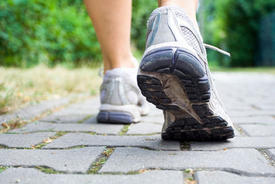How much Sodium do you average a day?

Smiles_And_Pizza
Posts: 23 Member
Hey, I'm really trying to concentrate more on my macros right now because I want to become healthier but one thing I've really been struggling with is sodium.
Some days I go over 3000, while other days I'm super low.
I'm sort of confused with the amount of sodium that I should be eating. I've heard any where between 1500-2300.
Also, I heard a rumor that an excess of 400mg of sodium can cause you to retain 2lbs of water weight? Is that true? 0.0
Here are my average sodium intakes per week since I've been logging ;P
Feb 28-March 6: 2735mg
March 7-13th: 2360mg
March 14-20: 2130mg
March 21-March 27: 2220mg
March 28-April 3: 2600mg
April 4-10: 2800mg
April 11-17: 2015mg
As you can tell by the averages, I have been jumping >.<
Some days I go over 3000, while other days I'm super low.
I'm sort of confused with the amount of sodium that I should be eating. I've heard any where between 1500-2300.
Also, I heard a rumor that an excess of 400mg of sodium can cause you to retain 2lbs of water weight? Is that true? 0.0
Here are my average sodium intakes per week since I've been logging ;P
Feb 28-March 6: 2735mg
March 7-13th: 2360mg
March 14-20: 2130mg
March 21-March 27: 2220mg
March 28-April 3: 2600mg
April 4-10: 2800mg
April 11-17: 2015mg
As you can tell by the averages, I have been jumping >.<
0
Replies
-
Nothing wrong with those numbers at all. I aim for 2000 or less but I have found that I am very sodium sensitive and have moderately high BP. My previous diet was crazy sodium high all my life.
As for water retention you will see it when you go over your average intake. It takes a lot more than 400 though to see it in my opinion. If I go over by 1500 or so I will see a temporary 2 lbs the next day.0 -
~1900mg/day.0
-
I try to keep it down to 2500 per day but I can easily go over that by 3000-5000 since I like olives, pickles, soy sauce, tabasco, Worchestershire sauce, cheese... I'm carrying 10 pounds of water weight right now.
 Angelique 0
Angelique 0 -
50,000mg0
-
I am set at 2300, and over the last few days I went over that number once. Most days I can be anywhere from 1200-2200.0
-
I weigh myself every three weeks (on Sunday). Here is what i do to minimize a fluctuating water weight gain.
On the week before I step on the scale I keep sodium between 2200-2500.
The "off-weeks" anywhere from 2200-4000.
I find doing it this way that on my weigh-in day I am not bloated (and i can track better).0 -
Those levels should be fine. Like a previous poster, I have blood pressure issues so I try to stay sub-2000 mg/day, and notice water retention setting in around 2500-2800 mg. But then again, I know it is just water retention so I'm not overly concerned with the connection to what it reflects on the scale.0
-
I aim for about 1800 mg/day. Controlling my sodium helps me maintain a healthy BP. Some people don't need to watch their sodium, but many people do. And yes, the sodium induced water retention can play havoc with the scale.0
-
Kinda a lot, I think...I'm always in the red. Typically 3,000+
I have no problems with it, other than a little water retention, and I don't have high blood pressure/heart problems so I really don't worry about it.0 -
Over 3500 a day looking at my diary.
I have also dropped my blood pressure from hypertension levels to normal levels by losing weight and largely not worrying about my sodium intake. In fact removed it from my diary.
For the record - I am not drawing any conclusions for that, or suggesting everyone ignore sodium.0 -
The new recommendations for daily sodium intake is 1500mgs. (for everyone)
It use to be 2500 for most people....:-)0 -
I can't quote the research, so you might want to look it up on your own, but I have read that women should not be as strict about sodium as males are advised to be. We need the iodine in iodized salt for our thyroids more than men do. Of course, that doesn't necessarily mean that the sodium that comes in pre-packaged foods is iodized.
I'm always told by my doctor though to eat more salt because of super low blood pressure. It keeps my blood pressure just high enough that I'm not passing out all the time, lol. Unfortunately though, I do believe it makes me retain quite a bit of water. I'd rather be conscious though than be rid of a few pounds of water.0 -
The past week or so, my weekly average has been around 1900
I was having a really difficult time a couple weeks ago with my sodium intake- it seemed like no matter what I did, I couldn't stay under the 2300 mark; often times I was 2800-3300. And I didn't need the macros to tell me I was over- I could feel it. No matter how much water I drank or how much I worked out, my wedding band was tight and I felt bloated. I had been eating a lot of processed foods and snacks, and despite staying within my calorie goals, I wasn't losing weight.
Since the day after my birthday, I've been much more careful with my food choices and have been keeping my sodium in check. I've lost about six pounds in the last ten days, the vast majority of which I'm guessing has been water weight, and I finally no longer feel bloated. It's nice.0 -
I just had a look at my reports. I would guess that I average around 1900-2000 mg a day. Sometimes it's much less; I usually don't go higher than 2500, and that's pretty unusual.
I cook most of my own food and generally just don't much like salty things. Someone eating more pre-made, restaurant, or processed food would have a much harder time with keeping down their sodium intake than me, unless they are quite careful.0 -
A ton of sodium. I'm always way over on the recommendation. The recommendation is wrong. I sweat so hard sparing and landscaping I get "salt lines" on my clothes and will cramp up if I don't keep my sodium levels up. My pulse is 50 and my BP is 90/50 even after I've been up and about (not waking) so high hypertension isn't a worry. Working out increases your need for salt.0
-
In the past week, my highest was 2,000 mg and my lowest was 1,055 mg. Like others, I cook most of my own food.0
-
I started tracking again after quite a hiatus on the first of this month. Three weeks of previous preliminary careful eating combined with the first week of tracking netted me a nice solid twenty pound reduction. But by the end of the first week...I was done with the 'long march of bland.'
I binged on a typical chips and cheese dip, both to satisfy my craving...but also to actually crunch the numbers and monitor the effects.
10,000 mg of sodium in that one day alone.
The result? Waking up dehydrated even after drinking like...twenty cups of water (and not peeing very much). A gain of ten pounds (that I still have yet to re-shave)...
I'm sure I'll find some balance along the way that doesn't include the usual fatalistic "don't worry, your tastebuds will adjust" nonsense...but for now, I'm averaging about 2500 to 3500 mg a day.
Deli turkey from my local store? Out of the question...instantly pushes me over the edge. Almost any salad dressing worth the bother, also...
:: turns to the sky and shakes his mighty, fleshy fists ::0 -
every day is different for me, some days im at 1100, others 1500, and others 2300+. i track mine but don't really care if i go over, under, etc. i've noticed that if i go over 2000 i start to feel bloated even though i drink more than 8 cups of water a day but it doesn't bother me it's always temporary, not like im actually gaining weight.
oh and i enjoy having ready-meals/microwave dinners often which is odd because when i do have them im usually under... but when i cook for myself im over LOL.. (i guess i use too much sauces etc)0 -
I don't have heart or BP issues so I really don't need to restrict my sodium. I tend to stay close to or under my recommended 2300 mg without really trying. The main change I made was to start buying Boar's Head sandwich meats for my lunches instead of whatever is on sale. They have several that are no salt added and are really tasty.0
-
Good luck with that. Sodium is my worst number to keep consistent. MFP says 2300. I bounce from 2000-3500. I have found that cutting down on fast food, a bunch of microwave ready, and son on helps. Completely removing "processed" foods is not going to happen. So it's a balance for me. Since tracking it I at least have seen how erratic it is and getting better.0
-
Don't know cause I do not track sodium or sugar.......0
-
Probably over 3k most of the time. I don't actively track but I like salt soooo...I put it on everything.0
-
Don't know cause I do not track sodium or sugar.......
This. Unless my doctor tells me I have a medical reason to reduce my sodium intake, I don't have a clue what it is and don't care.
Don't track unless you have a medical reason to track. There is such a thing as hyponatremia.0 -
I have high BP and try to keep under 1500mg daily. But the other very important part of this is Potassium which I try to keep high. They balance each other out apparently. When I gave up wheat, my weight dropped 16lbs with no exercise and I was able to halve my blood pressure med. Now I am exercising and the weight is reducing as well AND more importantly, my BP is coming down again.0
-
Just checked. My mean for the last 3 months is 1400, with a max of 2400. My husband has high blood pressure and we all do low sodium in our house.
Your numbers are okay. It's important to drink more water if you're doing a lot of sodium to keep your balances right and make it easy on your kidneys.0 -
Interesting read: http://authoritynutrition.com/how-much-sodium-per-day/0
-
I am always way over what is set on MFP0
-
Anytime I eat out, is usually a bad sodium day. I'm making the effort to eat at home more often.
Potassium is just as important as Sodium. Potassium should be equal to sodium or greater for good health. The latest USDA recommendation is 4700 mg of potassium per day. Unfortunatly, that number is not published on food labels and potassium content is currently an optional food label item.
Good sources of potassium include fruits, vegetables, beans, nuts, potatoes, salmon and dairy products.
Preparation can affect potassium content. For example, if beans are boiled and drained, quite a bit of potassium can be lost.
Sweat should be considered. Anyone who sweats a lot during the day needs more sodium and potassium than someone who doesn't.
I'm not a nutrition expert, but I have high blood pressure and I've studied quite a bit about this topic.0
This discussion has been closed.
Categories
- All Categories
- 1.4M Health, Wellness and Goals
- 398.5K Introduce Yourself
- 44.7K Getting Started
- 261K Health and Weight Loss
- 176.4K Food and Nutrition
- 47.7K Recipes
- 233K Fitness and Exercise
- 462 Sleep, Mindfulness and Overall Wellness
- 6.5K Goal: Maintaining Weight
- 8.7K Goal: Gaining Weight and Body Building
- 153.5K Motivation and Support
- 8.4K Challenges
- 1.4K Debate Club
- 96.5K Chit-Chat
- 2.6K Fun and Games
- 4.8K MyFitnessPal Information
- 18 News and Announcements
- 21 MyFitnessPal Academy
- 1.5K Feature Suggestions and Ideas
- 3.2K MyFitnessPal Tech Support Questions


























